#islam rules and regulations
Explore tagged Tumblr posts
Text
Unveiling the Puzzle: Understanding Islam in Today's World
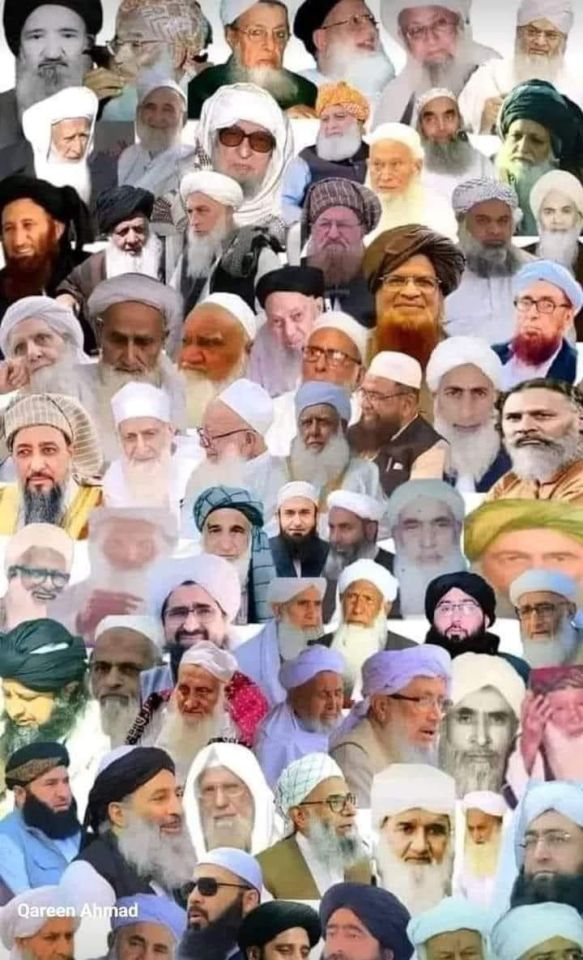
View On WordPress
#1st prophet of islam#1st rasool of islam#2nd nabi of islam#2nd prophet of islam#3 fundamental principles of islam#4 scholars of islam#5 rules of islam religion#6th pillar of islam#7 beliefs of islam#about islam in english#did islam come from ishmael#dr yasir qadhi yazid#english lecture on islam#english talk about islam#english with m islam#explaining quran in english#explanation of islam religion#explanation of quran in english#first holy book of islam#history of islam english#history of quran in english#how did muhammad spread islam#information about islam in english#islam explained in english#islam from the beginning#islam in english literature#islam information in english#islam religion in english#islam rules and regulations#islam teaching in english
0 notes
Text
New Ramadan 2024 Iftar Rules Announced for Mecca's Grand Mosque
Saudi authorities have outlined specific regulations for individuals and groups wishing to offer Iftar meals to worshippers at the Grand Mosque in Mecca during Ramadan 2024. These guidelines aim to ensure a smooth and organized experience for all. Iftar Key points Online application: Benefactors can now electronically choose their preferred location within the mosque to distribute Iftar…
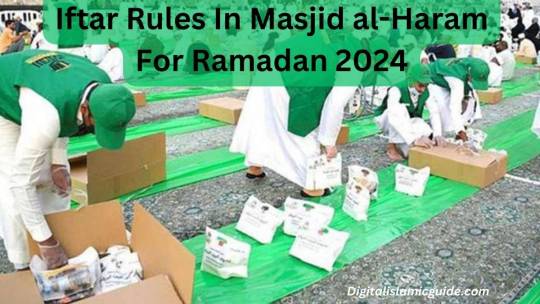
View On WordPress
#digital islamic guide#digitalislamic#grand mosque iftar regulations#hajj#iftar at grand mosque mecca#makkah#mecca iftar rules#mecca mayoralty#pilgrims#prophet&039;s mosque medina#ramadan 2024 saudi arabia#ramadan dates in 2024#ramadan iftar rules grand mosque#ramadan umrah mecca#saudi arabia#saudi food and drug authority
0 notes
Note
Hi! Your art is so gorgeous I’m very intrested, and Im sorry if this question is rude or tone deaf in any way, but why do you dont draw eyes? I know you've probably had already been asked this- and once again Im sorry if I sound annoying. I just never had seen a stylistic choice like this
Thank you! I'm happy you liked my Nigerian Miku drawing 😋 (didn't expect it to get so much attention in 2 days lol).
To answer your question, it is not a stylistic choice but a islamic choice has i am a muslim Who follow the rules and regulations of Islam ☪️🧕.
In Islam, we believe that drawing people/animals is imitating God's creation. So scholars of Islam advise us that if we were to draw characters, it's best to keep them faceless or with minimal facial features but no eyes. (Facial features give things life in a way, especially the eyes 👀)
DISCLAIMER!!! I'm just a regular Muslim on the internet, so to get a better understanding of this topic, I strongly recommend reading from many trusted Islamic websites or visiting a nearby Mosque, in ur area.
To conclude that would be the reason why I draw the way I draw! Your question was not annoying to answer at all, so thanks for asking :DD!
172 notes
·
View notes
Note
hi there i hope you’re doing well 🖤 i have a question if you don’t mind answering. i did some donation commissions for Palestine a few months ago and planning to start them up again, but I was thinking of opening nsfw commissions this time around in hopes of expanding my reach to more niche corners. nsfw/erotic art is a primary focus of mine, however I can’t tell if it’s appropriate to open those kinds of comms for this particular cause. would this be okay? id much appreciate an answer, but ofc feel free to ignore ! ty
Honestly this is a tough question but not for appropriateness reasons. If the person you're helping raise money for is muslim, they might feel uncomfortable receiving money that was obtained through NSFW means since for many Muslims, receiving money through methods that are classified as haram is forbidden. Now this is from my own personal understanding of how money regulations work in Islam, but as I know it, many people if they knew the source of the money, would refuse it.
I would honestly avoid it especially if you're going to share a specific fundraiser. If anything, only because you don't want to be put in a situation where the other person is uncomfortable with it or theyre wanting to return the money. But again, I can't say I know for certain, as this is a literal life or death situation so people might feel different and in Islam, there's always an exception to the rule but... I'd err on the side of caution.
If someone who is more versed in Islamic law/regulations than me wants to weigh in, feel free.
I don't know how it is for Christian Ghazzawi though so I don't want to say anything about that.
198 notes
·
View notes
Text
Utopia is always a Compromise

Someone asked me something in a private message, getting rather annoyed with my insistence that pretty much any and all conflict can happen in a Solarpunk world: "Well, what is an utopia to you?" And technically the answer is fairly simple: "An utopia is not perfect, but as good as things are going to be." And that is a claim I am going to stand by.
I spent yesterday pretty much the entire day writing a Solarpunk short story for an anthology. And that short story very much is about all that. About compromises. Because I somehow feel, that a lot of folks in the solarpunk sphere do not grasp two things about utopias:
Utopias are going to differ a lot depending on who you ask.
Because of this, any utopia is inherently political.
One person's utopia is going to be someone else's dystopia. Or to put it differently: Nazis imagine utopias too. In their utopias whole cultures have been eliminated, while a few rich white people rule over everyone else. To them this is what they imagine "the best possible world" to be.
Of course, Solarpunk inherently is a very left leaning genre and ideology. My Solarpunk utopia is anarcho-communist of course. In my Solarpunk utopia, there are no more nation states, and there are no more borders. Everyone who wants it is given room to live, and the other necessities to life: access to clean water, food, electricity, health care and education. The education system is a lot more self-directed by the students. And the electricity obviously is created by renewable ressources. Food is grown more locally. Indigenous people get their land back. All those things apply.
And yet, even my Solarpunk utopia has to deal with compromises. Because some things are always going to be a compromise.
Everyone who has been following me, knows that I am a prison and police abolitionist. And this means compromise. While I am 100% certain, that most crime can be prevented by giving people access to the ressources listed above, and allowing everyone a healthy life, some crime will still happen. People still will find reasons to argue. And in some cases arguments might result in violence, and in some extreme cases in death through violence. And some people will be more prone to that violence, for a variety of reasons. And I still think, they should not be "locked away", with maybe some extreme cases as exceptions. But all of that is always a compromise not everyone is going to agree with.
The story I wrote yesterday tackled two other topics in this regard, I have very complicated feelings about myself. Religion and mental health.
Most folks active in the solarpunk sphere are either agnostic or atheistic, or part of some more spiritual nature-related religions. And either group generally tends to have a big disdain for organized religion like Christianity or Islam. Which I - someone who has been abused for pretty much his entire youth through the means of Christianity - absolutely can understand. And yet, I do not think it would be right to overly regulate religion in a Solarpunk world. Even though a lot of those religions are very anti-anarchist in many regards, I also do not think it is the anarchist way to forbid someone else from believing in whatever feels right for them to believe. But that will undoubtedly bring further issues. Because where are you going to draw the line? No matter where you draw it, it is going to be a compromise. And some conflict will arise from it.
What if you have a religion that thinks queerness is bad? Or that thinks women belong in the kitchen? When is it okay to regulate a religion? Because you will not have political success going on and wanting to forbid the world largest religions. Trying to do that would be quite dystopian to me. You also cannot force them to completely change their doctrine, and even if you tried, they would probably still preach some of it behind closed doors. So what are you going to do? Which is the compromise you would take?
In the story I wrote, the main character was a queer guy who has grown up religious and struggled a lot with mental health issues because of it. Because he was queer and his family had been hateful towards that queerness because of their religion. Simply for the reason that controlling someone's personal believes was not right - but the family controlling that queer kid was not right either.
And mind you: We know that contrary to what atheists say, religion is not fully something people choose for themselves. There is some genetic component to religiosity. And if someone has grown up religious, you cannot just force that person to change their religion. That is absolutely akin to forcing a gay person to be straight. It is a violation of the person's rights and freedom, and will be very detrimental to their mental health.
But the mental health issue is another one that is a big topic for compromise in the anarchist way - and even in our modern democratic way.
Most progressive nations do not allow a person to be forcefully put into a psych ward, unless that person tried to commit suicide, or was outright physically violent towards another person. This is also the same bar that usually has to be cleared before someone has to be forced into therapy, and you basically cannot force anyone to take medication. But this is a compromise as well, that does harm as much as it does good.
Because even those mentally unwell people who might not be physically violent, still can very much be abusive towards others. Be it family members, partners, colleagues, roommates, friends, or themselves. And there can absolutely be an argument made that it would be better for everyone to set the bar lower before you can force someone into therapy, as they would probably even benefit themselves. Yet, we do not do that. Because technically it is everyone's personal freedom to decide, whether they want medical care or not - and because we have made the mistake in the past, of course, when a lot of people were forced into and kept under miserable conditions in psychological phacitilies. And we do not want any repeat of it.
But to come back to the story: The main character is abusive mostly towards himself - but this is obviously still harmful towards his partner and child. Nobody can force him to accept any help, after having made a bad experience in therapy before. But the status quo clearly also is not helping anyone.
And you will find those issues in a thousand of different ways. If you are anarchist, you are going to be against a lot of regulations, because those will always give some people power over other people, but where will you draw the line to regulate? Where will you allow some people to make decisions over other people?
Because in some regards this will always have to happen. And no matter how much you can argue: Every line is pretty much arbitrary. Which is why you will find some people argue for pretty every possible line you could draw in the sand. I can bring a thousand arguments for prison abolition - but the people who are for keeping prisons around, can bring a thousand arguments themselves. Sure, I think a lot of those arguments are bullshit. But they think the same about my arguments. And the big issue with those social topics is, that the science is not as firm as we wanted it to be. I will argue that there is some science clearly giving indications for prison abolition - but the prison abolition crowd such as myself does also assume a general scenario, that never has been tested in the modern world. We do not know if it would work. And I myself will openly say, that I have no fucking clue how to deal with issues like misogyny, where we have some data that suggests that once it has taken a certain hold even the best rehabilitation system will not erase it from someone's mind in about 30% of all cases. Sure, we might be able to get rid of it over the course of generations - but as an anarchist I also have to ask: "What do we do until then?" Because those misogynist men will kill and assault women.
I know it is easy to imagine that if only things were better, all human strive would end. But it simply is not the case. Partly, because some people will still struggle with one thing or another and develop bad ways of dealing with that struggle. And partly, because certain ideologies that lie at the root of so many issues cannot just be erased from the world from one day to the other. You cannot uninstall hate from someone's mind. You might through education get some people to be better - but not everyone. And this... Well, this will always create some issues.
#solarpunk#lunarpunk#utopia#dystopia#cyberpunk#utopian fiction#solarpunk fiction#religion#patriarchy#fuck the patriarchy#anarchism#atheists
39 notes
·
View notes
Note
I think that religion should not be the basis of a state, nor should it influences laws or customs. Like the abortion bans and hatred of queer ppl derived from Christianity here in the US. Many people are trying to get the US to be a truly secular society not just a culturally Christian one. All those ma countries in SWANA in which slavery is commonplace and misogyny is abound are not cool either. So, Israel is not justified in being based on Judaism or whatever.
I think all states should be for all people. Not just a particular bunch.
Anon meant these comments as condemnation of Israel, but let's apply Anon's criticisms to modern nation states and see which countries Anon would need to condemn:
There are currently three nations whose very names make clear that their national identity is based on Islam. These three are:
Anon wrote: "I think that religion should not be the basis of state..."
1. The Islamic Republic of Pakistan
2. The Islamic Republic of Mauritania
3. The Islamic Republic of Iran
Will you call for their dissolution?
Anon wrote: "I think that religion should not be the basis of state, nor should it influence laws or customs"
Okay, let's apply this standard to states which exist right now. This info is from Wikipedia, but I'll welcome any corrections if anyone can document errors here. This is nowhere near a complete list - these are just a handful of the nations in which Islamic faith and Sharia make laws to which non-Muslims are subject:
In Algeria, article 222 of the Family Code of 1983 specifies Sharia as the residuary source of laws.
...
Article 2 of Egypt's 2014 Constitution declares the principles of Sharia to be the main source of legislation. Egypt's law and enforcement system are in flux since its 2011 revolution; however, the declaration of Sharia's primacy in Article 2 is a potential ground for unconstitutionality of any secular laws in Egyptian legal code. Sharia courts and judges are run and licensed by the Ministry of Justice. The personal status law that regulates matters such as marriage, divorce and child custody is governed by Sharia. In a family court, a woman's testimony is worth half of a man's testimony.
...
In Mauritania, the Penal Code contains Sharia crimes such as heresy, apostasy, atheism, refusal to pray, adultery and alcohol consumption. Punishments include stoning, amputation and lashing. ...
How about Morocco? In 1956, a Code of Personal Status (Mudawana) was issued, based on dominant Maliki school of Sharia jurisprudence. Regional Sharia courts also hear personal status cases on appeal. In matters of family law, a woman's testimony is worth only half of that of a man. With 2003 reforms of its criminal law, Article 222 of its new criminal code is derived from Sharia; Articles 220–221, 268–272 of its criminal law similarly codify those activities as crimes that are prohibited under Sharia. Morocco adopted a new constitution in 2011; Article 41 of this constitution granted sole power to the Superior Council of the Ulemas to guide its laws through fatwas.
...
Sharia has been previously declared the chief source of all legislation in Sudan's 1968, 1973 and 1998 Constitutions. In 2005, Sudan adopted an interim national constitution; it removed some references to Sharia, but included Sharia-derived criminal, civil and personal legal codes, as well as Sharia-mandated hudud punishments. The Criminal Act of 1991 prescribes punishments which include forty lashes for drinking alcohol, amputation of the right hand for theft of a certain value and stoning for adultery.
However, there is no record of either any amputation or stoning ever having taken place in Sudan. The use of Sharia in Sudan ended in September 2020, when Sudan officially became a secular state after Sudan's transitional government agreed to separate religion from the state, ending 30 years of Islamic rule and Islam as the official state religion in the North African nation. It also scrapped the apostasy law and public flogging. However, after 1 year of military coup took place, Sharia got installed once again and harsh punishment like floggings still exist according to article 146. ... In Iran, Article 167 of the constitution states that all judicial rulings must be based upon "authoritative Islamic sources and authentic fatwa". Book 2 of the Islamic Penal Code of Iran is entirely devoted to hudud punishments. Iranian application of Sharia has been seen by scholars as highly flexible and directly contradicting traditional interpretations of the Sharia.
...
In Iraq, Article 1 of the Civil Code identifies Sharia as a main source of legislation. The 1958 Code "made polygamy extremely difficult, granted child custody to the mother in case of divorce, [and] prohibited repudiation and marriage under the age of 16." In 1995, Iraq introduced Sharia punishment for certain types of criminal offenses. Iraq's legal system is based on Islamic Sunni and Jafari (Shi’ite) interpretations of Sharia. Article 41 of the constitution allows for personal status matters (such as marriage, divorce and inheritance) to be governed by the rules of each religious group. The article has not yet been put into effect, and a unified personal status law remains in place that builds on the 1959 personal status code. ...
The Constitution of Pakistan acknowledges God as the sole sovereign of the universe and the Parliament as a delegate. The Constitution of Pakistan requires that all laws conform with Islam and not conflict with the Quran or Sunnah. The Council of Islamic Ideology reviewed the British era legislation and found most of it did not conflict with Sharia. Sharia was declared the Supreme Law of Pakistan in the 1991 Enforcement of Shariat Act. Section 4 stipulates that courts select an interpretation of law consistent with Islamic jurisprudence and principles.
...
Sharia is the main source of Qatari legislation according to Qatar's Constitution. Sharia is applied to laws pertaining to family law, inheritance, and several criminal acts (including adultery, robbery and murder). In some cases in Sharia-based family courts, a female's testimony is worth half a man's and in some cases a female witness is not accepted at all.
Anon wrote: "I think states should be for all people. Not just a particular bunch."
I think it is very easy to say that when one is a Christian or a a Muslim...or even just culturally Christian or culturally Muslim.
There are 57 Muslim countries in the world, according to the Organisation of Islamic Cooperation's (OIC) member list. Among these, 49 countries have a Muslim-majority population. Will you call for their destruction?
Christians make up a majority of the population in 157 countries and territories. Today, several nations officially identify themselves as Christian states or have state churches. These countries include Argentina, Armenia, Costa Rica, El Salvador, Denmark (incl. Greenland and the Faroes), England,Georgia, Greece, Hungary, Iceland, Liechtenstein, Malta, Monaco, Norway, Samoa, Serbia, Tonga, Tuvalu, Vatican City, and Zambia. Will you call for their dissolution?
So why, Anon, do you single out the world's only Jewish state, a particularly small state, for special criticism? How do you expect Israelis and Jews to see this as something other than a double standard, hypocrisy, and antisemtism?
Neither Christian nations or Muslim nations have a good history of protecting the rights of Jews as a religious identity or as an enthic identity. The Jews who survived the ethnic cleansings of Europe, the Middle East, and Africa? They went to Israel. That's Israel's population. That's what Israel is.
Meanwhile, let's look at religious freedom in Israel, the world's only Jewish state, which you single out for criticism:
The Declaration of the Establishment of the State of Israel (1948) guarantees freedom of religion for all. Each religious community is free, by law and in practice, to exercise its faith, to observe its holidays and weekly day of rest, and to administer its internal affairs. Each has its own religious council and courts, recognized by law and with jurisdiction over all religious affairs and matters of personal status such as marriage and divorce. Each has its own unique places of worship, with traditional rituals and special architectural features developed over the centuries.
Please tell me what rights the Jewish state denies to non-Jewish Israelis?
Tell me how Israel fails to protect the rights of women?
Tell me how Israel fails to protect the rights of its LGBTQ+ communities?
Please compare Israel to its neighbors on these things, Anon, and you'll understand why your attempt to suggest Israel is no better than it's neighbors is genuinely offensive to people who know better. When you hear anyone call Israel "Jewish Supremacist" or "apartheid state" or "theocracy," you know immediately that that person is either painfully ignorant of verifiable facts or a dishonest propagandist.
I don't know you, Anon. I assume you're young and not a student of history or political science.
I'm assuming that you're ignorant, not malicious. I think that this is the case for a majority of the Western, Leftist anti-Israel activists. I don't think you seek to be a bigot, I think your bigotry is a product of ignorance and I want to provide the verifiably truthful information you're missing.
I appreciate, though, how @#&*ing tired many Israelis and Jews are of dealing with these hypocritical double standards and the denial that they continue only because the anti-Israel crowds have one standard for Jews...and a different standard for everyone else.
It's ridiculous. It can't be supported by reason, it's not ideologically or logically consistent, so it's just bigotry.
When confronting these absurd circumstances where Israel is held to a standard which is applied to no other nation on earth, Jews in the US mostly find it both outrageous and frightening because we thought we shared the same values as our liberal non-Jewish friends.
But Israeli Jews, I think, don't have any more fucks to give about western Leftist ignorance or malice...and I don't blame them.
Meanwhile, here in the US, we have a xenophobic, Christian Nationalist president-elect set to take power in January with his party in majority in both our national legislative houses, and a Conservative Christian majority on the Supreme Court. I'm much more worried about the continuance of religious freedoms for religious minorities in the US than in Israel in 2025. I fear the rise of an American Christian Taliban, but I think (and hope) Israeli politics will keep their Israeli parallels (like Ben-Gvir and Smotrich) in check. Trump is likely to attack US Muslims. He will likely apply another travel ban. I fear he'll erode religious freedoms for all, but I'm particularly worried about potential attacks by Trump's party on US Muslim communities. The ADL's leader, Jonathan Greenblatt, was appalled in 2015 and 2016 when Trump proposed a Muslim Registry in the US. Know what he said?
"If one day Muslim Americans will be forced to register their identities, then that is the day that this proud Jew will register as a Muslim."
That's emblematic of who most US Jews are and I'm very proud of that. That's why we're the only polled religious group in the US which overwhelmingly voted for Harris. We know what Trump is. We recognize the signs. Harris supported Liberal values, Trump threatens them.
Read history, Anon. Read political science and political theory. Learn what the modern nation state *is*
A modern nation state is made up of a geographical territory and a people who identify as a nation. By definition, that's always a "particular bunch." That doesn't mean necessarily religiously or ethnically uniform (thank goodness), but there are no successful states without a broadly shared sense of national identity, and that is frequently built on identities which are based on ethicity, religion, or ideology (including civic, secular, pluralistic ideology). Read about naturalization processes in nations you think are good and successfully supporting a pluralistic society.
Please feel free to send more asks or messages.
Wishing you a happy new year and hoping that you, wherever you live, enjoy as much freedom as non-Jewish Israelis will continue to enjoy in 2025.
#hate mail#asks#jumblr#israel#antisemitism#jewblr#jewish tumblr#jewish#i/p#Religion#Law#Nations#States#nation states#establishment of religion#state religions#Christian nationalism#Not really hate mail... Ignorance mail?
12 notes
·
View notes
Note
I want to first apologize for my ignorance, which is why I am asking the question. 😅 Is music allowed in your country?
It's ok we are talking about a backward religious fascist regime ruling through sharia law and there are lots of misinformation and disinformation in media around it. The short answer is yes music is allowed but it's under strict state regulations and censorship. Like any other content really. Everything from art to even science. Art and artists specifically were one of the first groups that were harmed after 1979. Because one of the main things totalitarianism targets is individuality and the ways to express it. And the Islamic Regime is against anything that makes people happy or has anything from Iranian culture and history. They hate Iranians.
Their problem with music was mainly the fact that music and musical instruments and singing are haraam(forbidden and doing it is a sin in this context) in Islam. They believe music is the song of Satan. So for the first years after 1979 coup any song that wasn't a choir or classic and soft instrumental was forbidden. Paradoxical? Yeah because they couldn't remove everything music related and a culture that has always thrived on celebrations and dancing and music would not back off. People still listened to pop songs from before 1979 or new songs from the singers who had fled the country. In their cars and houses and parties. They would have been punished if they were found out and yet they still did it.
So forbidding it didn't work and they started to use the genres that they considered proper and traditional music in the state media. Slowly pop singers were permitted to release some of their songs. But they are all strictly regulated. The lyrics, the song, the theme everything can be rejected if some random person in the ministry of culture and Islamic guidance decides it has improper, anti religion and anti regime content. They still don't show any musical instrument on state tv because they're haraam. Moreover, women aren't allowed to sing or dance in public because it's haraam if a Na Mahram(I can only loosely translate it to stranger in this context. I'm not getting into a concept English doesn't have) man hears or sees them and get sexually provoked and commits sin.
So there are underground music and singers. Some leave the country just to be able to make the music they want freely. And the ones who don't and don't obey the laws and make music for people, for the victims of the regime get arrested, imprisoned and tortured like Toomaj Salehi.
Despite all of this, people still listen and sing and dance to "illegal music" openly and in public and at every chance they get, even though they can get arrested or beaten up and tortured. A lot of women do it without the forced hijab which has more serious consequences. It is a way of resistance and they can't erase us and our culture.
20 notes
·
View notes
Text


All Abrahamic religions claim to be monotheistic, worshiping an exclusive God, although one who is known by different names. Each of these religions preaches that God creates, is one, rules, reveals, loves, judges, punishes, and forgives.
However, although Christianity does not profess to believe in three gods—but rather in three persons, or hypostases, united in one essence—the Trinitarian doctrine, a fundamental of faith for the vast majority of Christian denominations, conflicts with Jewish and Muslim concepts of monotheism.
Since the conception of a divine Trinity is not amenable to tawhid, the Islamic doctrine of monotheism, Islam regards Christianity as variously polytheistic.

Judaism and Islam have strict dietary laws, with permitted food known as kosher in Judaism, and halal in Islam. These two religions prohibit the consumption of pork; Islam prohibits the consumption of alcoholic beverages of any kind. Halal restrictions can be seen as a modification of the kashrut dietary laws, so many kosher foods are considered halal; especially in the case of meat, which Islam prescribes must be slaughtered in the name of God. Hence, in many places, Muslims used to consume kosher food. However, some foods not considered kosher are considered halal in Islam.

With rare exceptions, Christians do not consider the Old Testament's strict food laws as relevant for today's church; see also Biblical law in Christianity. Most Protestants have no set food laws, but there are minority exceptions

The Seventh-day Adventist Church (SDA) embraces numerous Old Testament rules and regulations such as tithing, Sabbath observance, and Jewish food laws. Therefore, they do not eat pork, shellfish, or other foods considered unclean under the Old Covenant. The "Fundamental Beliefs" of the SDA state that their members "are to adopt the most healthful diet possible and abstain from the unclean foods identified in the Scriptures".

Proselytism
Judaism accepts converts, but has had no explicit missionaries since the end of the Second Temple era.
Judaism states that non-Jews can achieve righteousness by following Noahide Laws, a set of moral imperatives that, according to the Talmud, were given by God[k] as a binding set of laws for the "children of Noah"—that is, all of humanity. It is believed that as much as ten percent of the Roman Empire followed Judaism either as fully ritually obligated Jews or the simpler rituals required of non-Jewish members of that faith.

Christianity encourages evangelism. Many Christian organizations, especially Protestant churches, send missionaries to non-Christian communities throughout the world. See also Great Commission. Forced conversions to Catholicism have been alleged at various points throughout history. The most prominently cited allegations are the conversions of the pagans after Constantine; of Muslims, Jews and Eastern Orthodox during the Crusades; of Jews and Muslims during the time of the Spanish Inquisition, where they were offered the choice of exile, conversion or death; and of the Aztecs by Hernán Cortés. Forced conversions to Protestantism may have occurred as well, notably during the Reformation, especially in England and Ireland
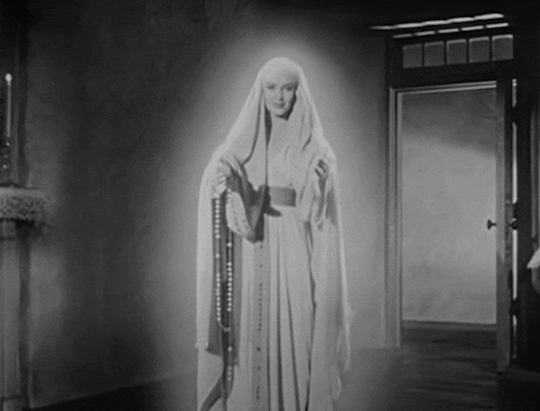
#kemetic dreams#islam#jews#judaism#talmud#christians#christmas#christianity#jesus christ#christian broadcasting network
56 notes
·
View notes
Text
every single time i see some goober on instagram (or here on tumblr for that matter) demonizing jews and israel, all I want to ask is:
1) what is your opinion on indigenous rights?
2) are jews white?
3) have you read hamas’ founding document (their 1988 charter)?
because these really get to the root of their hypocrisy. these so-called leftists always claim to support indigenous rights and land back movements until it comes to jewish people, because they have a fundamental lack of understanding of jewish history, jewish ethnic and racial ancestry and identity, and the relationship between jews and that land. (also it shows how American-centric their worldview is that they see this conflict almost exclusively through an overly-simplistic lens of color, wherein they see jews as white/white europeans and palestinians as a generalized, vague group of people of color who are only ever victims instead of as a complex group of people with their own history, culture, and identity). and you KNOW they haven’t read the charter because they sincerely believe this is all solely about “liberation from oppression” and have no idea about the very real and very violent direct, explicit antisemitism that is the very basis for Hamas’ ideology. their original charter completely denies that jewish people originate from the very same land they claim to originate from; they say that they only way for the three abrahamic faiths to coexist peacefully is under islamic rule and regulation (which if you know literally anything about how jews and christians were treated under dhimmi status you’d know that they were treated as second class citizens at best); They directly cite this verse from the quran as justification for a holy war against the jews — "The Day of Judgement will not come about until Moslems fight the Jews (killing the Jews), when the Jew will hide behind stones and trees. The stones and trees will say O Moslems, O Abdulla, there is a Jew behind me, come and kill him.” (and don’t even get me started that the charter also explicitly states that women are valuable to the movement... but only “because they are makers of men” and because they stay home and rear the children.) I’ll concede that their 2017 revised charter states that they have “no problem with the Jews”, however this is moot when you can easily find video after video of young children saying explicitly that they want to kill Jews (yahood) and eradicate them from the land. these kids aren’t being taught to separate Jews and Israel/Zionism like Hamas leads people to believe (like they have convinced you westerners to believe); make no mistake, it’s not about cleansing the land of only "zionists", it is about eliminating all jewish people, denying their equal claim to the land, and denying their autonomy and right to self-determination.
i strongly, STRONGLY disagree with israel’s policies towards palestinians. i fucking hate Netanyahu, i hate his cronies, i hate that they court the far right in israel, i hate everything regarding how they have handled and continue to handle this entire conflict. and EVERY single other jew i know feels the same way. but jews have been stepped on and abused and slaughtered by their muslim/christian/pagan neighbors for literally thousands of years at this point. they were murdered en masse within living memory (and updated estimates put the death toll of the Holocaust at somewhere between 10-12 million, by the way. we are still finding mass graves in eastern europe all the time). jews deserve to govern themselves and live in their historical ancestral homeland. palestinians also deserve to live in peace and security, and israel has a responsibility to ensure that. but i will never ever support the complete erasure of the state of israel because i fundamentally believe in jewish sovereignty and indigenous rights, regardless of how much time they’ve been away, especially considering they were forced out and into a diaspora -- their leaving the land was not their choice. if the notion of jews standing up and making a space for themselves and ensuring their security upsets you, then perhaps the world should have actually treated them as human beings instead of slaughtering them. if we say that antisemitism is part of this conversation, and that the antisemitism should be condemned, and your first instinct is to either deny or deflect, you really need to examine your own antisemitism and how you have been thinking about this.
70 notes
·
View notes
Text
"Highly confidential" documents obtained by BBC Persian outline how Iran's government is trying to crack down on women who do not wear a hijab.
Two documents from April and May reveal the judiciary could set up "mobile courts" in public places like shopping malls to punish dress code violations.
They also show schoolgirls could face action by the education ministry and that celebrities could be jailed for up to 10 years for "promoting corruption".
Iran's government has not commented.
However, an Iranian newspaper that published a short section of one of the directives has been charged with publishing classified documents.
And some of the directives were included in the controversial "Hijab and Chastity Bill" that is currently being reviewed by the Guardian Council watchdog before becoming law.
Iran's parliament passed the bill in September - a year after protests erupted over the death in custody of Mahsa Amini, a 22-year-old woman who was detained by morality police for allegedly not wearing her hijab properly.
Women burnt their headscarves or waved them in the air at the demonstrations against clerical rule, during which hundreds of people were reportedly killed in a brutal crackdown by security forces.
Although the unrest has subsided, a growing number of women and girls have stopped covering their hair in public altogether in open acts of defiance.
According to the leaked documents, Interior Minister Ahmad Vahidi approved a series of directives aimed at coordinating action by the government and other entities to address the issue of women not covering their hair in public - several months before parliament began debating the hijab bill in secret.
Security services - including the Islamic Revolution Guard Corps (IRGC) intelligence service, the ministry of intelligence, and the Security Police - were granted extensive powers to implement those directives, they show.
Some of the directives state that:
Police should "prepare the necessary documentation regarding schoolgirls who unveil" so that appropriate action can be taken through the education ministry
Celebrities, influencers and bloggers who do not cover their hair, or who "encourage unveiling" on social media, should face the charge of "promoting corruption", which is punishable by up to 10 years in prison. Officers will also be able to enter their homes and seize their computers and mobile phones
Officers can seal or shut down without permission any shops or other businesses not comply with the hijab regulations, and that any customers who violate them should be denied services, forced to leave, or handed over to the judiciary
Cafes considered "corrupting centres" because of the role they played in last year's protests should be shut down, particularly those near schools and universities
Officers are authorised to initiate legal proceedings against women who resist warnings to cover their hair on charges including "promoting corruption"
There is a need for a national database of "motorcycle number plate bank" so those carrying female drivers or passengers with uncovered hair can be identified
Monitoring should be increased of companies whose employees "violate dress codes provocatively and immodestly during entry, exit, and within the premises"
A significant portion of the directives in the leaked documents have already been implemented, including setting up hijab enforcement units inside metro stations and other public spaces; impounding cars that transport unveiled women; denying services to women violating the dress code; and closing cafes.
According to the documents, the police force is required to assign a sufficient number of officers to "identify and warn women who have unveiled themselves", and that in areas where there is sufficient manpower IRGC personnel will help carry out the task.
In the past few months Iranians have noticed the presence of hijab enforcers at metro stations across the capital, Tehran.
The interior ministry and Tehran municipality have described them as "self-motivated forces that do not require a licence for their activities".
But the documents show that their presence is the result of a government decision, which has required planning and the allocation of resources.
The documents also emphasise the importance of "extensively filming and documenting the identity of those involved in unveiling", and indicate that hijab enforcers filming women and girls are affiliated to the security services.
28 notes
·
View notes
Text
Unveiling the Puzzle: Understanding Islam in Today's World
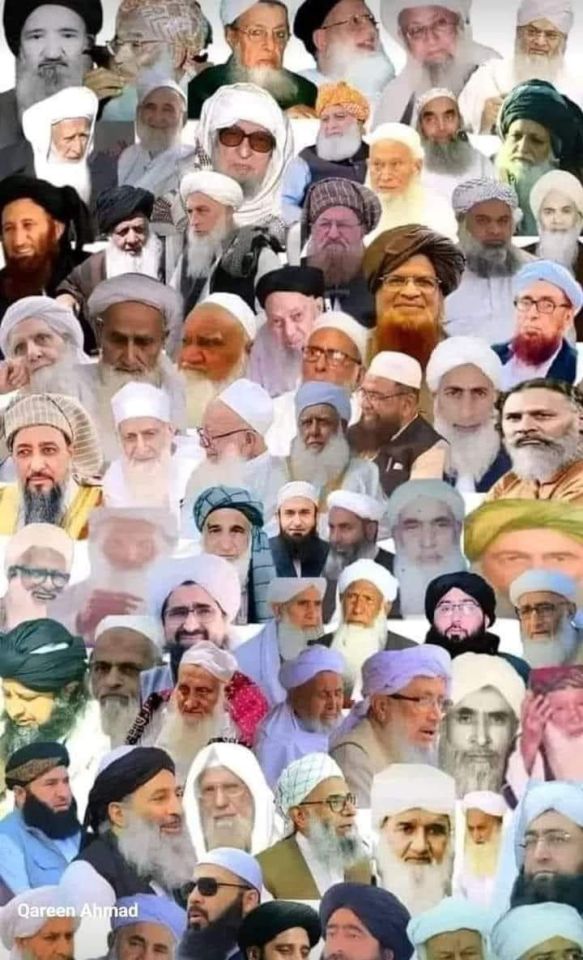
View On WordPress
#1st prophet of islam#1st rasool of islam#2nd nabi of islam#2nd prophet of islam#3 fundamental principles of islam#4 scholars of islam#5 rules of islam religion#6th pillar of islam#7 beliefs of islam#about islam in english#did islam come from ishmael#dr yasir qadhi yazid#english lecture on islam#english talk about islam#english with m islam#explaining quran in english#explanation of islam religion#explanation of quran in english#first holy book of islam#history of islam english#history of quran in english#how did muhammad spread islam#information about islam in english#islam explained in english#islam from the beginning#islam in english literature#islam information in english#islam religion in english#islam rules and regulations#islam teaching in english
0 notes
Note
Please can you explain this Persian/Farsi debate to an ignorant westerner?
Time for a philology lesson!
The oldest form of my language was called Ariya (𐎠𐎼𐎡𐎹) by its speakers; the name shares a root with Sanskrit ārya (आर्य), and was simply an autonym for the people who lived in the area and spoke Indo-Iranian—it’s the root of the English word Aryan, too, although that has its own socio-political connotations thanks to the ideology of the Nazi Party. Ariya is the root of the word Iran, and so it’s really the ‘original’ name for both the region and the language, without foreign influence.
The speakers of Ariya lived during the Achaemenid era, around the area they called Parsa (𐎱𐎠𐎼𐎿), known to us as Persis via the Greeks. They’re the ancestors of today’s Persians, the majority ethnic group within modern Iran. Parsa roughly approximated what is now known as Fars Province (فارس) in present-day Iran, and the modern autonym for the national language and majority ethnicity, Farsi (فارْس��), is the adjectival form of Fars. Parsa became Fars because of the influence of Arabic, a Semitic language unrelated to the Indo-Iranian languages; Arabic doesn’t have a p sound, and so foreign borrowings undergo a sound change that transforms p to f. The Arabs called the language and the people Farisiyy (فَارِسِيّ), which was then ultimately reborrowed by the Indo-Iranian speakers as Farsi. This is why we still refer to Zoroastrians in India, who migrated during the Arab Conquest, as Parsi (پارسی), not Farsi—because they moved there before we’d adopted the Arabic f sound-change.
So, ‘Persian’—which comes from the Ancient Greek word Persis (Περσίς), which in turn derives from Old Persian Parsa (𐎠𐎼𐎡𐎹)—shares the same root, and refers to the same language and region, as ‘Farsi’—which comes from Arabic Farisiyy (فَارِسِيّ), which in turn derives from Old Persian Parsa (𐎠𐎼𐎡𐎹). Two words, both from the same root—just one with a detour via Greek, and the other with a detour via Arabic. Since the Western world was culturally influenced much more by Greece, ‘Persian’ became the standard way to refer to the language in English, and the country was officially called Persia up until 1935, when the Shah formally requested that the original endonym Iran (from Ariya) be used.
In our own language, it’s easy to just call ourselves Irani (ایرانی) and say that we’re living in Iran (ایران), because we’ve done so since early times, but there is quite a bit of debate over whether to use ‘Iran’ or ‘Persia’ to refer to the country in English. Strictly speaking, it shouldn’t be a religious or political debate—it’s actually a matter of geography, in that ‘Iran’ refers to the whole land of the Iranians, whereas ‘Persia’ is arguably just one province—but because of the political changes that came about in the 20th century, the English language has associated Persia with the old Imperial state, and Iran with the new Islamic republic. In a similar way to the Parsi people retaining their original p, Iranians who left Iran before the Revolution (or those sympathetic to the Shah) often call their country ‘Persia’ in English, whilst those who left later (or are sympathetic to the current government) call it ‘Iran’ in English, but this isn’t a hard-and-fast rule.
This debate hinges around two separate words from two separate roots, but the Persian/Farsi question actually concerns two doublets, or etymological twins. Both are legitimate names for the language, but ‘Persian’ is the English name, whilst ‘Farsi’ is the endonym—exactly like ‘German’ and ‘Deutsch’, or ‘Hungarian’ and ‘Magyar’. The Academy of Persian Language and Literature, a governmental branch concerned with regulating the national language (equivalent to the Académie Française in France), issued a recommendation in 2005 that Farsi not be used in European translations, on account of its lack of historical precedence, but this has not been universally adopted by everyone. In popular English usage, ‘Persian’ can refer to the language and to both the Persian ethnicity and Iranian nationality, whereas ‘Farsi’ is only really used to refer to the language, even though in Iran, it’s used to refer to both the language and the ethnicity.
To sum up: there’s no clear-cut answer, and it comes down to preference and which linguistic and historic paths you wish to evoke. The words are pretty much synonymous, but can carry slightly different shades of meaning depending on the speaker and context.
3 notes
·
View notes
Note
Why do women wear Hijab in islam?
Allah swt. created us and we serve him. He also knows what is best for people. Allah swt. He always wants the best for us and that is why he has given us some rules for this life so that we behave correctly and do not do injustice to ourselves or others. To live a contented life. One regulation is the hijab for Muslim women. Allah swt has obliged us to wear the hijab and I and other women are very happy to comply. Because we love Allah swt. we love his deen. we trust in his wisdom and we desire Jannah (Paradise.) and you know what? Allah swt. has given us women in hijabs a very special honor. Allah swt. has chosen clothing for us women that clearly shows everyone that she is a Muslim woman! that is a devotee! This is a very great honor from Allah swt. for us women alhamdulillah! The hijab is an obligation for the Muslim woman. We exclusively define our hijab according to the Quran and Sunnah. for us, for our daughters and for all of humanity. “Oh prophet! tell your wives, your daughters and the wives of the believers to pull something from their shawl over themselves, that is more likely to be recognized and so not to be bothered and Allah swt. is all forgiving and merciful.“
5 notes
·
View notes
Text
having an open mind does not mean closing it on the rules and regulations and restrictions put down by islam.
15 notes
·
View notes
Text
Incoming Text for Salma Hayek: @salmahayek and Christina Santini: @santinihoudini and Penélope Cruz: @penelopecruzoficial and Charlize Theron: @charlizeafrica Read this letter:
Subject:“Understanding the Structure and Governance of Muslim Royal Families”
Dear Readers,
I encourage you all to take some time to study the following Wikipedia pages about the Saudi Arabian Royal Family. It is essential to understand the structure, rules, and regulations of a Muslim royal family, especially how they manage the many descendants, handle succession, and follow Islamic laws in their governance. This knowledge will greatly help in understanding how the Somali Royal Family will be managed, as Somalia is a Muslim country, and we must respect and abide by Islamic principles.
Here are the key links for your reference:
House of Saud – click on the blue link
Descendants of Ibn Saud – click on the blue link
Succession to the Saudi Arabian throne – click on the blue link
Sudairi Seven – click on the blue link
King of Saudi Arabia – click on the blue link
Please review these pages carefully, as they will provide valuable insights into how Muslim royal families are traditionally managed and the importance of adhering to Islamic laws.
Best regards, Angelo Crown Prince and Future Sultan Somali Royal Family
P.S.:
Watch this documentary:
House of Saud -- Saudi Arabia Documentary
youtube
2 notes
·
View notes
Text
By: Armin Navabi
Published: Feb 6, 2023
A protest becomes a revolution when the protesters have hope, determination, and unity. This is why sowing division is a tried and true tactic used by unpopular leaders the world over to cling to power. This has been the Iranian regime’s recipe for survival for the past four decades. They turn different groups against each other by invoking ancient hatred and historical tensions. They do not invent the hate, but they inflame and weaponize it, pitting men against women with religion, ethnicities against each other using the fear of separatist movements, and religious people against secularists with warnings of degeneracy and depravity.
But now everything has changed. A 22-year-old woman's brutal death at the hands of Iran's morality police has laid waste to 40 years of efforts to divide and conquer. The recent protests — or revolution, as many Iranians insist — began after Mahsa Amini died in police custody after being arrested for her "improper" hijab (head covering) while visiting Tehran from the Kurdistan Province in Iran. As news spread and the people of Iran watched in horror, the same thought crossed their minds: “That could be my daughter.” “That could be my sister.” Against all odds, in a country where division over religion, ethnicity, and gender has been common, many Iranians have put aside their differences and are now united in one goal. Mahsa Amini's murder has brought people from all walks of life into the streets across Iran, demanding the end not merely of the morality police, but of the regime itself. Some loose strands of hair were enough to get Amini killed. They were also enough to bind a divided nation together in solidarity.
I'm not in the mood to talk about the Nobel Prize. https://t.co/8aq9SDhFRT
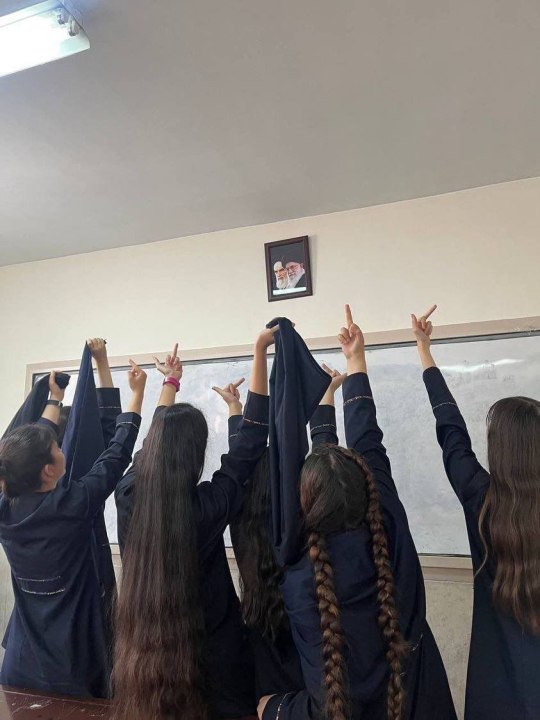
Women young and old are tearing off and burning their hijabs in the streets in protest against the Islamic regime. Even those unable to walk are joining the protests, as demonstrated by this woman in a wheelchair chanting, "Don't be afraid, don't be afraid, we are together."
For years, the Islamic Republic has told the people that Iran will be fractured and ultimately torn apart by Arab, Turkish, Baluch, and mainly Kurdish separatist groups if the regime falls. Leveraging Iranians' strong desire to protect their borders, the regime scares people into support by fearmongering about the potential success of Kurdish separatist groups. You may have some disagreements with us, but we are the only thing standing in the way of anarchy. But the spell of such propaganda seems to have broken. Non-Kurdish protesters across Iran now chant in support of Kurdish Iranians, including "Woman, Life, Freedom", a phrase which is Kurdish in origin. This slogan reflects the spirit of the protests and has captured the attention of people worldwide. The fact that this Kurdish chant is shouted across Iran’s ethnic groups highlights the unity among protesters.
The 1979 Islamic Revolution in Iran, which ushered in the current theocratic regime, also divided people along religious lines. In my childhood, I was introduced to the dichotomy: my friends and family were more liberal-minded and anti-regime, while the very religious pro-regime schools and media attempted to brainwash me. Being religious always seemed to go hand in hand with being pro-regime, and yet, more and more, the devout have been joining the anti-regime ranks for the past few years. These demonstrations have exposed this trend. Among those who have been arrested are some of the most pious, including women who wear the chador (a type of hijab that very religious women wear in Iran). Standing shoulder to shoulder with them are religious men.
pic.twitter.com/IXIMuEEy6k
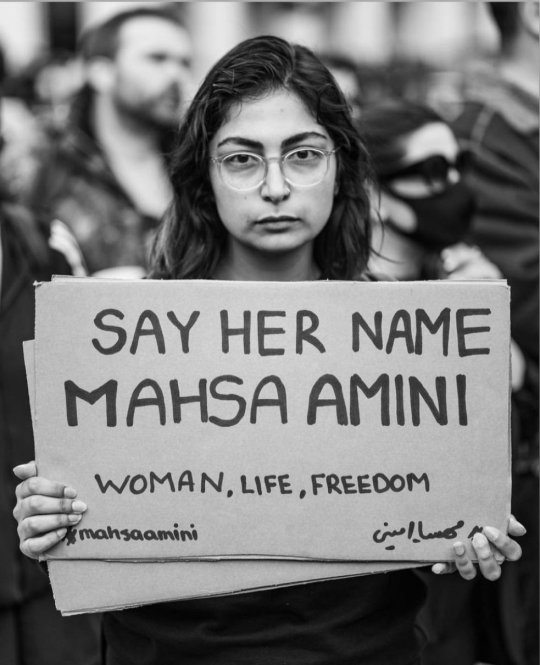
Despite all the laws and regulations that segregate and set them against each other, the men and women of Iran have come together to show the regime that a desire for freedom transcends gender and tradition. We have seen religious men appeal to their fellows by invoking the injustice inflicted on Imam Hussain, the martyred grandson of the Prophet Muhammad revered by Shia Muslims, imploring them to rise and stand against the injustice done to Mahsa. One man shouted that any man who doesn't stand up today is the same as those who betrayed Imam Hussain, and they will not be able to look him in the eyes in the afterlife. Along the same lines, a former TV presenter for the regime reminded people of the upcoming anniversary of the Prophet Muhammad's demise, showing respect for the prophet and demonstrating his religious sentiments, but then warning protesters to be on guard for false flag operations which might take the form of government agents burning the Quran and pulling chadors from women while pretending to be anti-regime protesters. His warning is an obvious indication that he supports the protesters, but he makes it even more explicit when he includes himself among them by saying, "We are fighting for freedom."
One area of concern is over LGBT issues. Contrary to the wishes of the regime, more and more Iranian LGBT activist groups have been springing up in recent years. Still, religious and traditional Iranians lag far behind on LGBT rights, and it remains a polarizing and unpopular issue. In an attempt to build the broadest possible coalition against the regime, some supporters are asking LGBT members to put their LGBT activism on the back burner, including requests that people not protest with rainbow flags [mainly in solidarity protests outside of Iran] and to try to blend in with others so that the regime can't use them to separate religious and traditional protesters from their ranks. The process of political sausage-making is rarely pretty, though it stands to reason that, should the regime fall, a more secular and democratic government would invariably be better for LGBT Iranians.
زیبایی ببینید: مردها شعار میدن زن، زندگی، آزادی زنان جواب میدن مرد، میهن، آبادی. امروز دانشگاه علوم پزشکی شیراز#مهسا_امین�� pic.twitter.com/1tdp3Yqm7Q
The central theme of the uprising has been putting aside differences and uniting against the regime. In a moment that perfectly captures the message of unity, you can hear men chant “Woman, Life, Freedom” and the women respond “Man, Nation, Prosperity.” No matter the class, religion, ethnicity, or gender, Iranians are standing together. It's your turn to stand with them. Use the English and Persian hashtags, #MahsaAmini and #مهسا_امینی to bring attention to what's happening in Iran. Lend your voice to the chorus to cast down repressive theocracy. Today, we are all Mahsa.
==
Funny how people who are actually oppressed aren't competing against each other for oppression points.
The universality and unanimity of this revolution might be one of the most remarkable things of all. Feminists are being asked to put away the man-hate slogans, LGBT people are being asked to put away the rainbow flags, because those will factionalize the movement, put men and more conservative religious types off-side, and create opportunities for the regime to divide and conquer. And they are. Because those are fights for another day. It's Iran, together, against the regime.
"Be with the people, one hand and one form with the rest."
Iran is a country that will be free.
Remember the Women's March in the US in 2017? Its most memorable symbol was a woman in a hijab, it featured a pro-Sharia Islamist among its most vocal representatives, and it descended into endless episodes of Intersectional madness, such as the pussyhat fiasco, which resulted in a furore, an apology and the deletion of the knitting pattern when feminists and Gender Studies professors insisted it wasn't sufficiently inclusive to women with penises. And also racism. Somehow. 🤡 When you're privileged and free, and your oppression is imaginary, the fight to the bottom is a mad scramble.
#iran#islam#iran revolution#iranian revolution#mahsa amini#islamic republic of iran#iranian regime#iran regime#islamic regime#free Iran#iran protests#iranian protests#religion#hijabi#hijab#woman life freedom#man nation prosperity#religion is a mental illness
33 notes
·
View notes